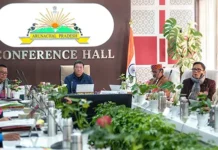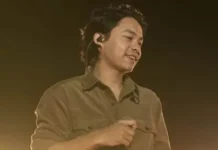[Tapak Uli]
This is in reference to the recent child sexual abuse reported from Silver Hill Public School in Upper Subansiri HQ Daporijo, in which the principal is the offender.
Except the fact that the victim’s father spoke out, reported and shared his thoughts on social media, there’s nothing new or surprising about this case.
Wondering? We acknowledge that there are countless cases which go unreported. Parents do not report such incidents unless it is grave in nature, and are usually reluctant for various reasons. We must appreciate the survivor’s father for speaking out, initiating and reporting the matter.
Gone are the days of being hush-hush. It’s time to speak out. When we don’t speak out and try to understand, it will block out all possible solutions. It’s not about obvious reasons, or going easy on anybody or any institution. It’s firmly about protecting our children. Our early intervention can and will reduce the risk of harm to children in the future.
Statistics tells us that one in four girls and one in nine boys will experience some form of sexual abuse before they attain the age of 16 years. Acknowledging this figure, I am sure some of you reading this must have experienced it. That is why it is such an important topic to discuss, to speak about, and to speak about more openly.
In the trial proceedings in child sexual abuse cases under the POCSO Act, it is easier to seek conviction when the accused is not a family member. But the same becomes difficult when the perpetrator is from within the family. In most of the cases, the victim and the family members turn hostile and, eventually, a majority of cases end up in acquittal. In other words, five in every six cases result in the accused being let off.
When the survivor is up to 10 years of age, the conviction rate is favourable as the family members are supportive, but when the survivor is in the age group of 11-15 years, there is a sharp rise in the acquittal rate. It is worse in cases where the survivor are in between 16 and 18 years, for the simple reason that they turn either hostile or are taken for some consideration.
We have seen in the past and also witnessed recent incidents in our own state where schools, fearing loss of reputation, have tried to hush up such matters and did not report such cases to the police, though the law mandates that once the school authority or any authority comes to know of the offence, they have to immediately report it to the police. But more often than not, these offences go unreported. Unfortunately, even the quantum of punishment prescribed hasn’t scared anyone enough to report such cases.
In most cases, the abusers are someone that the children know, trust and even love. Like father, grandfather, an older sibling, a babysitter, a neighbour, and such. In just about every case, the offenders use bribery or threats to keep the children quiet. There are many children who will never be able to share their account of sexual abuse until long into adulthood, because we as parents never encourage them to talk about such issues. Consequently, kids who are sexually abused and do not receive proper intervention or support will likely have a lifetime of negative consequences, ie, things like chronic illness, low self-esteem, addiction, mental illness, etc.
Age and relationship don’t matter to the perpetrators. Predators will prey on any age and relation. There are reports of a three-month-old baby being sexually abused, a father raping his daughter, teachers molesting students in schools – and the stories go on. It is the most despicable thing that can be done to a child, and we all are responsible for it. Now it is equally our responsibility to stop such things from happening.
Surviving childhood sexual abuse affects the rest of the person’s life, but it’s absolutely possible to recover from the effects of child sexual abuse.
First we need to have a better understanding of how these abuses can happen, and then follow certain practical steps.
- Dissociation is usually indicative of early childhood sexual abuse. The face of a child can say it all.
- Notice warning signs of abuse, like sudden change in the child’s behaviour.
- Your child’s special liking for someone or, for that matter, hating someone.
- Refusing to go to school, tuition, other classes, etc.
When you find any of the above signs, then it is time to talk.
Parents can ask important questions to their children and help them speak out. Your child needs support to help them speak out. Talk about relationships and sexual behaviour, and good and bad touch to help them understand what is and what is not okay.
But not all sexual abuse involves direct contact. It could be seeing pornography, online sexual acts, etc. These are a kind of child exploitation. We can prevent this kind of abuse by making the online world safer by checking the privacy settings. These are just a few examples. However, paying attention and being aware is the only way to prevent such abuse.
A happy childhood is every child’s right and, as parents it’s our moral and legal duty to provide them with it. So speak up. The price of silence may be horrendous. (The contributor is Prosecuting Officer, Home Department)




